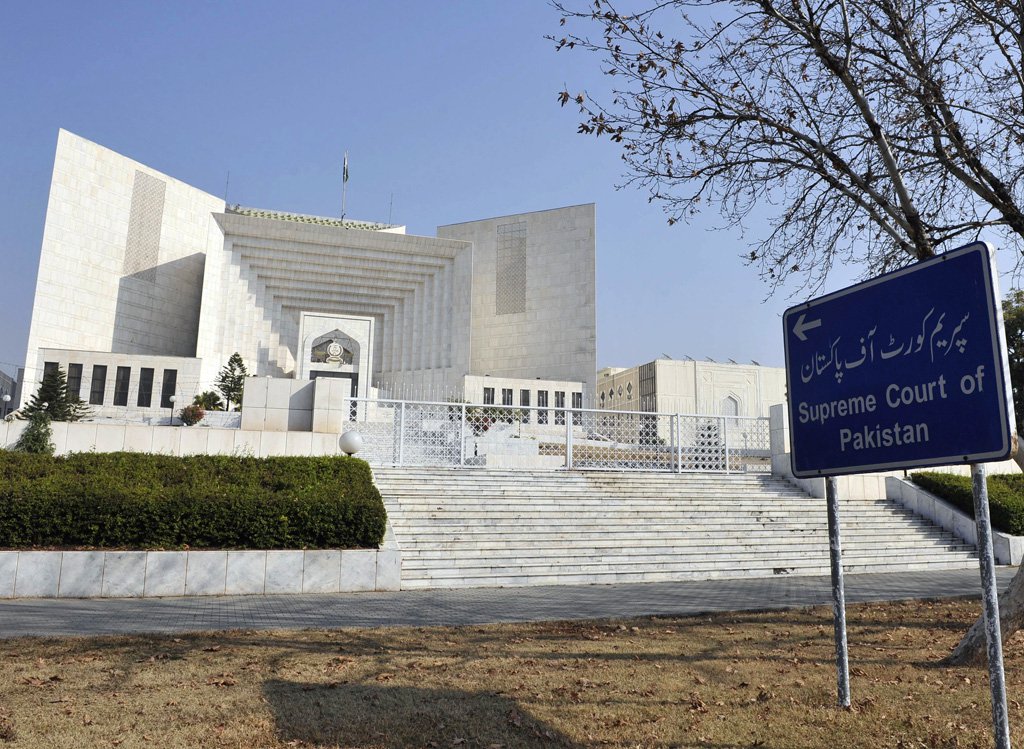
The top court on Friday again expressed serious concerns over the delay in the trial of suspects facing cases filed by the National Accountability Bureau.
Hearing a bail petition filed by suspect Ali Asghar, Justice Qazi Muhammad Amin Ahmed inquired as to why the anti-graft body was unable to conclude “open and shut” cases.
“Who is responsible for the delay in trial?” the judge asked.
Farooq H Naek, the counsel for the accused, told the division bench of the apex court led Justice Mushir Alam that the reference against his client was filed in 2007.
The bench then sought a report on status of the trial.
A couple of days ago, the bench had also questioned NAB’s “selective policy” for arresting suspects.
The court was hearing a bail petition filed by Rawat Union Council former secretary Javed Akhtar Chaudhry, who is accused of misappropriating Rs60 million and illegal hiring.
During the hearing, the accused's counsel Shah Khawar told the bench that Chaudhry has been in jail for the last 14 months but still NAB has not yet submitted his charge-sheet in the accountability court.
The lawyer said there were four other accused in the case but NAB had singled out his client and the other accused were still free. “The Supreme Court should take suo motu action against this discriminatory behavior of NAB,” he demanded.
The top court lambasted NAB for selective accountability and discrimination and observed that this behaviour was counterproductive and harming the anti-graft initiative.
A senior government functionary while speaking to The Express Tribune admitted that NAB’s arrest policy was denting the accountability process.
He noted that instead of making efforts to have the suspects convicted, NAB was only putting them behind bars. “It is this policy that allows the opposition to criticise NAB, he added.
“The anti-graft body is also submitting lists of dozens of witnesses and that is also one of the reasons behind the delay in trial.”
Under the accountability law, the trial of a suspect should be concluded within 30 days.
In July this year, the Supreme Court in its 83-page judgment on the decision to grant bail to PML-N stalwart Saad Rafique had noted that NAB’s conduct throughout the case was a “clear manifestation of their utter disregard for law, fair play, equity and propriety”.
"The bureau seems reluctant in proceeding against people on one side of the political divide even in respect of financial scams of massive proportion while those on the other side are being arrested and incarcerated for months and years without providing any sufficient cause even when the law mandates investigations to be concluded expeditiously and trial to be concluded within 30 days. Nonetheless, investigation is often not concluded for months and cases remain pending for years," observed the court, while referring to frequent allegations of NAB being used for political engineering.
The court observed that this is not in the national interest and to the contrary is causing "irretrievable harm to the country".
Referring to the power of arrest held by the bureau, the court noted that the powers should not be deployed as a tool of oppression and harassment but should excercised with care and caution. "Arrest of a person has to be justified not only by referring to prima facie evidence and adequate actionable material sufficiently connecting the person with the offence/crime complained of, but also by showing that in the given circumstances, there were no other less intrusive or restrictive means available," read the writ order.







1732012115-0/Untitled-design-(14)1732012115-0-270x192.webp)










COMMENTS
Comments are moderated and generally will be posted if they are on-topic and not abusive.
For more information, please see our Comments FAQ